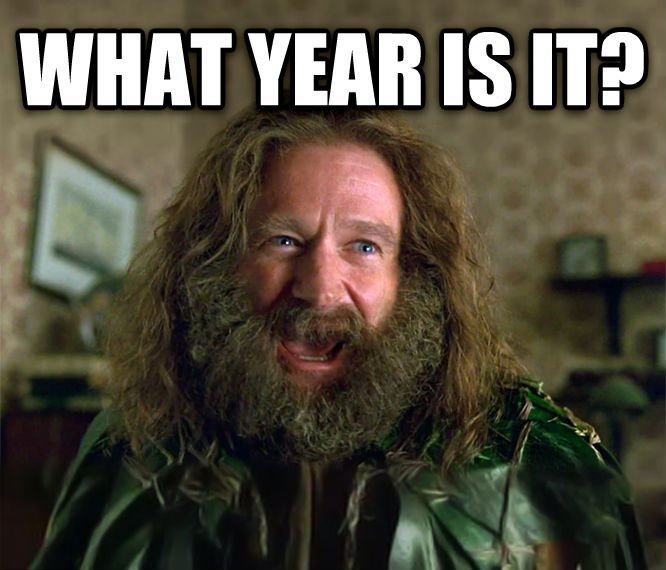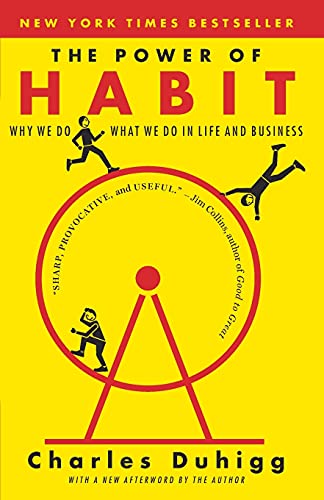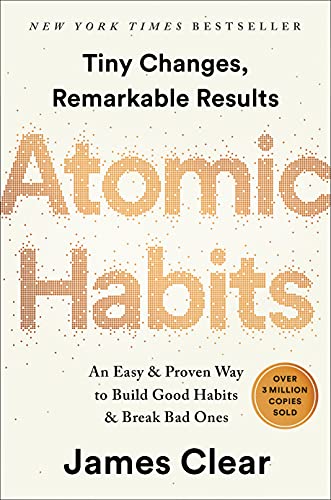The Top Five Books You Should Read to Improve Your Habits
Improving your habits, soft skills, and behaviors can be a challenge.
The summer before my senior year of college I had the privilege of working for a digital marketing firm in San Francisco. I was not living in the city at the time and the commute was unpleasant. Sometimes the bus rides consumed 4 hours of my day. But the job was incredibly valuable, my coworkers were top-notch, and I learned a few really important habits and soft skills.
The CEO was instrumental in this – he loved taking us out to lunch and teaching us everything he knew. He was and is a fantastic storyteller, and very keen on good etiquette. Every day he would arrive well dressed, smiling, and ready to start work.
I’ll always remember a day when I saw him hand-writing a note. It was a letter to a client. I remember wondering, “That’s odd. His computer is right in front of him. Why not just send an email?” He caught wind of my confusion and proceeded to give me a lesson in consideration and relationships.
You see, he said, a note is personal. I can send an email with very little effort. But a hand-written note is different. It takes time, careful attention, and planning, and therein holds a lot more meaning than an email. Anyone can quickly type an email and click SEND. But how many of us actually take the time and energy to write a hand-written note? Very few.
Imagine receiving a hand-written note. “What’s this? Is this a letter?!”
You instantly transform into Robin Williams in Jumanji, “WHAT YEAR IS IT?!” It’s more than just a letter. It’s a representation of thought, caring, and effort. A hand-written note can be a special expression of gratitude (assuming it’s positive).
My boss knew this intuitively and had developed a habit of sending hand-written notes to clients, coworkers, and friends.
I don’t know everything about my former boss, but I do know this: When he walked into a room, there was competition to shake his hand. I’m sure his letter-writing habit played a role in that, and he encouraged me to adopt it as a vital soft skill.
Do you want to improve your habits and behaviors?
Of course. Everyone wants to have the discipline and know-how to be more productive and impress other people, and we all have a little room for improvement. But sometimes it’s hard to know where to start.
To help, here are The Top 5 Books You Should Read to Improve Your Habits. Read the following five books to start improving not only your habits, soft skills, and behaviors, but also those of your organization. These books were chosen specifically and listed in a specific order. Read on to understand why.
Please note: We are an Amazon Associate, and we earn from qualifying purchases using the links in this article.
#1 - Mindset: The New Psychology of Success, by Carol S. Dweck, Ph.D.
If you’re going to start making changes in your life and business, you need to approach those changes with the right attitude. Stanford University psychologist Carol S. Dweck, Ph.D., would call this your “mindset” – how you think about your talents and abilities. Without the right mindset, your efforts will be far less successful, or you may fail altogether.
Dweck’s decades of research revealed a powerful truth: Your success in every endeavor, from school and sports to work and relationships, is powerfully influenced by your mindset. People with a fixed mindset believe that abilities are fixed and are less likely to flourish than those with a growth mindset who believe abilities can be developed.
Mindset: The New Psychology of Success shares Dweck’s research and findings related to your mindset and the mindset of cultures, groups, and organizations.
Want to develop some new, better habits and behaviors? Start here. Adopt the right mindset first because it affects the habits you choose to improve, your method of improving them, and your follow-through to sustain new habits.
#2 - The Power of Habit, by Charles Duhigg
With the right mindset in place, you can dive into an understanding of your habits and behaviors. In The Power of Habit, by award-winning New York Times business reporter Charles Duhigg, you’ll learn why habits are such an important factor in determining our growth, personal development, and productivity in the workplace.
Duhigg shows us why habits exist, how much of our behavior is determined by unconscious actions triggered by our habits, and how we can change our habits.
Want to know why some companies struggle and others succeed? It’s often because of the “keystone habits” encouraged and implemented by leadership. Duhigg dives deep into the habits of individuals and companies like Procter & Gamble, Target, Olympic swimmer Michael Phelps, Starbucks CEO Howard Schultz, NFL locker rooms, the nation’s largest hospitals, Alcoa, and more.
Check out The Power of Habit to understand why changing habits and behaviors can have such a powerful impact on your career, your personal growth, and the success of your organization.
#3 - The 7 Habits of Highly Effective People, by Stephen R. Covey
After you have developed the right mindset and you understand why your habits and behaviors are so important, it’s time to absorb one of the all-time classics: The 7 Habits of Highly Effective People.
Stephen Covey’s best-selling self-improvement book is based on Covey’s belief that the way we see the world is based on our own perceptions. Therefore, the catalyst for positive change is developing habits that foster a change in our perceptions.
The 7 Habits of Highly Effective People is not a step-by-step guidebook on which specific habits you should develop to make yourself successful, like “Wake up every day at 6:30am”, or “Exercise three times a week.”
It’s an analysis of how we view success, followed by seven principles you can use to develop self-mastery, independence, teamwork, collaboration skills, communication skills, interdependence, and continuous growth and improvement.
The 7 principles include:
Habit 1: Be Proactive
Habit 2: Begin with the End in Mind
Habit 3: Put First Things First
Habit 4: Think Win/Win
Habit 5: Seek First to Understand, Then to Be Understood
Habit 6: Synergize
Habit 7: Sharpen the Saw
This beloved classic builds on and reinforces Carol S. Dweck’s Mindset and Charles Duhigg’s The Power of Habit.
#4 - Atomic Habits, by James Clear
Now we get into the nitty-gritty. You now have the right mindset, you know why habits are so important, and you have some foundational principles to guide you on your journey.
Next up, Atomic Habits: An Easy & Proven Way to Build Good Habits & Break Bad Ones, by the brilliant James Clear.
With chapters like “How to Build Better Habits in 4 Simple Steps” and “How to Make Good Habits Inevitable and Bad Habits Impossible”, James Clear drives deep into the specifics of what habits are, why they exist, and how small, positive changes can produce massive results.
For example, Chapter 10, “How to Find and Fix the Causes of Your Bad Habits”, discusses how our habits are often derived from fundamental human desires and motivations. Furthermore, we can identify any bad habits and reprogram our brain with good habits. We can even learn to enjoy hard habits.
Atomic Habits is all about developing a system for change. James Clear shows you how to do that through the science of small habits. It’s the perfect practical resource for anyone who wants to make big changes in their life and business.
#5 - The ONE Thing, by Gary Keller
Here we go, the big #5. If you’ve read #’s 1-4 you have the right mindset, an understanding of the power of habits and behaviors, seven valuable principles, and a system for getting results.
Now it’s time to focus, and one of the most awesome books ever to help you focus on what’s most important is The One Thing, by Gary Keller.
The One Thing isn’t specifically about improving your habits. But, if you’re reading through this list in the proper order, the other four books already taught you how to do that.
The reason this book is #5 on our list is because it’s such a valuable illustration of the importance of prioritization. You have the ability to develop the most amazing habits and behaviors in the world, and that’s awesome!
However, if you don’t figure out which habits, behaviors, and/or tasks are the most important, you’ll end up wasting your time with a whole host of tasks and chores that never end.
Gary Keller wants you to do less and get more. The ONE Thing is Gary’s remarkable story of how he felt burnt out, stressed, distracted, and worn down. He was hitting a wall and felt like a failure.
The problem? He was focused on too many low-value priorities. His solution became the inspiration for the book, embodied in a question: “What’s the ONE thing you can do such that by doing it everything else will be easier or unnecessary?”
If you want to improve your habits and the habits of your organization, The ONE Thing is a must-read. Everyone has limited time, including the hours you invest to develop new habits. Let The ONE Thing focus your habit-building efforts for maximum positive transformation.
Other Books to Improve Your Habits
The five books above are an excellent place for you to start learning how to improve your habits and behaviors. But they’re not the only sources of information, and not the only books you can read.
Here’s a few more books that are also excellent, highly rated sources of information and inspiration on improving your habits:
Tiny Habits: The Small Changes That Change Everything by PhD BJ Fogg
Better Than Before: What I Learned About Making and Breaking Habits by Gretchen Rubin
High Performance Habits: How Extraordinary People Become That Way by Brendon Burchard
Willpower: Rediscovering the Greatest Human Strength by Roy F. Baumister and John Tierney
Mini Habits: Smaller Habits, Bigger Results by Stephen Guise
Failing Forward: How to Make the Most of Your Mistakes by John C. Maxwell
Switch: How to Change Things When Change Is Hard by Chip and Dan Heath
The Big Leap: Conquer Your Hidden Fear and Take Life to the Next Level
30 Days - Change your habits, Change your life by Marc Reklau
A Worthy Challenge
Developing new habits is a challenge. However, assuming you choose the right habits, the benefits far outweigh the work required to become better. I hope this article and the books we have recommended will point you in the right direction.
Now, if you’ll excuse me, I need to go write a hand-written note and send it to a former boss of mine.
Special thanks to John Durham, Professor of Marketing at the University of San Francisco and CEO of Catalyst S+F, for your encouragement, professionalism, and kindness. I hope you like my note!






